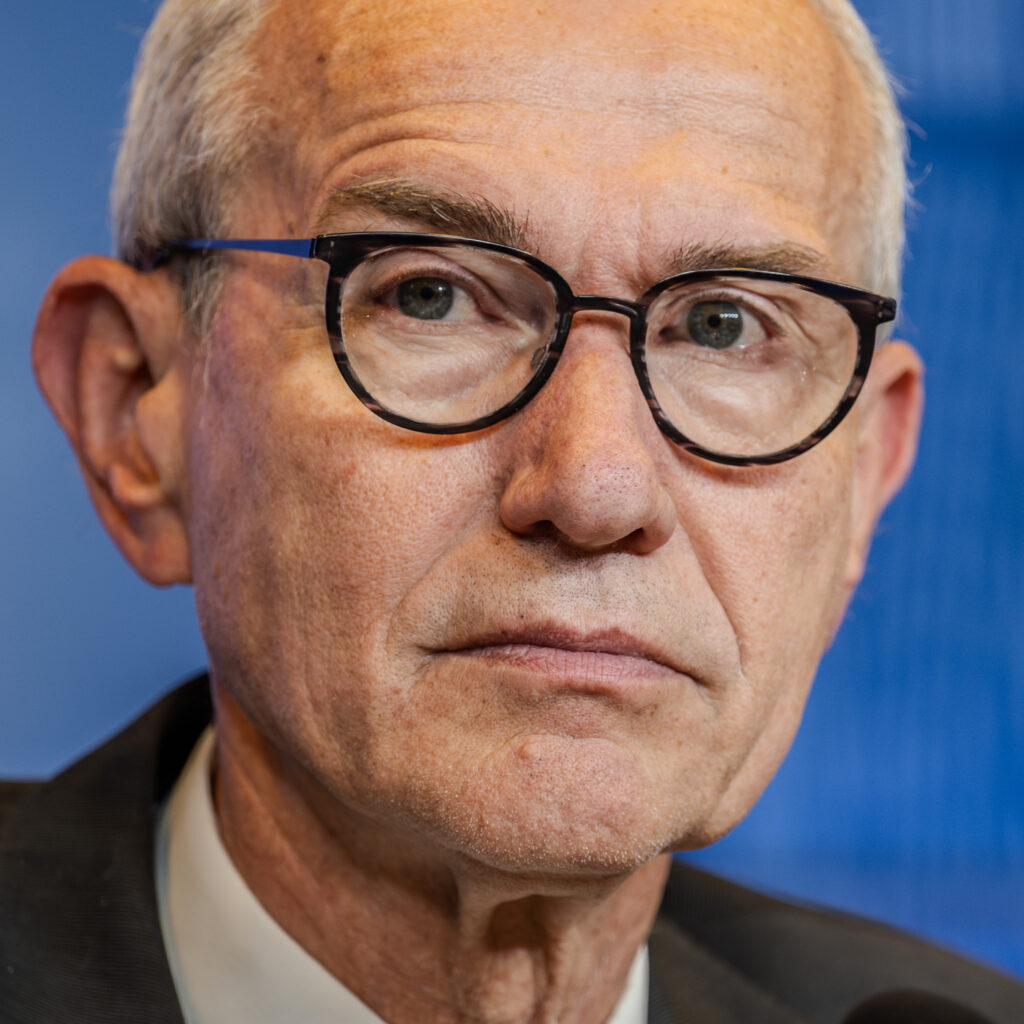By Pieter Cleppe
In Belgium, the debate over the future of the welfare state has found a focal point: Frank Vandenbroucke (picture). The veteran socialist, who serves as Belgium’s federal health minister, has become emblematic of how Europe’s welfare systems, under intense financial strain, are turning to centralised and coercive measures to impose savings and control costs.
A Welfare State Under Pressure
Belgium’s welfare model has long been one of Europe’s most generous—and most expensive. Taxes on single, childless workers now exceed 50% of their gross salary, the highest rate in the OECD, far above the Netherlands’ 35.1%. Public health spending has doubled as a share of GDP since the early 1970s, from 4% to 8%. Yet deficits continue to mount: this year, Belgium’s federal and regional governments together are on track for a €35 billion shortfall, equal to 6% of GDP, while public debt hovers at 106% of GDP.
It is against this backdrop that Vandenbroucke’s reforms must be seen. Officially, his agenda is about “sustainability”—containing costs, rationalising fees, and reining in what he casts as excessive profits in the medical sector. But critics argue it’s something darker: a power grab by the state at the expense of doctors, hospitals, and ultimately patients.
Central Planning by Decree
During his last term, Vandenbroucke negotiated annual growth of 2.5% above inflation for the health budget, effectively locking in rising costs. Even the new Belgian government, which entered office early this year, plans to continue spending at nearly that pace, despite vague promises of cuts.
To claw back money, the minister unveiled a series of proposals that amount to a sweeping expansion of state control. He wants tighter regulation of what doctors may charge patients. He has floated plans to demand that doctors share “top-up” fees they earn from private hospital rooms with the hospitals themselves—institutions already struggling with their finances. He is also seeking greater government powers to suspend medical licences.
The result has been unprecedented backlash. In early July, Belgium saw its first nationwide doctors’ strike in 20 years. An alliance of doctors, health insurance funds, and hospitals issued a joint statement condemning the minister’s approach: “Reforms are being developed at breakneck speed, without thorough prior debate and outside the existing consultation structures.” Patrick Emonts, president of the largest doctors’ union, warned that Vandenbroucke’s plans are “leading us to an authoritarian system.”
Authoritarian Drift in Europe’s Welfare States
Belgium is not unique. Across Europe, governments facing unsustainable welfare costs are reaching for stronger state intervention rather than structural reform. France, for example, spends 58% of GDP on public programs yet continues to run deficits of nearly 6% of GDP. Prime Minister François Bayrou’s government collapsed earlier this year after proposing measures that would only slightly reduce the deficit. In Germany, Chancellor Friedrich Merz has warned that the welfare state can “no longer be financed” on current economic output, a statement that broke a political taboo and drew fierce criticism from his coalition partners.
But it is Belgium, through Vandenbroucke, that now offers the clearest case study of this new trend. Instead of allowing more patient cost-sharing, cutting benefits, or liberalising health provision, the Belgian government is doubling down on central planning—tightening rules, expanding state powers, and overriding consultation mechanisms.
The ECB Safety Net
This authoritarian drift is made possible by the eurozone’s monetary architecture. Since the European Central Bank pledged in 2012 to do “whatever it takes” to preserve the euro, member states such as France, Italy and Spain have been able to accumulate record debt without immediate market consequences. Belgium is now benefitting from the same implicit guarantee. But the cost of this hidden subsidy is inflation and the erosion of private savings—costs borne silently by ordinary citizens.
A Warning for Europe
Frank Vandenbroucke may insist that his reforms are about sustainability, but they reveal something deeper: when welfare states can no longer afford their promises, their instinct is not to shrink but to control. Belgium’s doctors have sounded the alarm; the question is whether voters across Europe will recognise the same pattern in their own countries before it’s too late.
Europe built its welfare model in an era of low debt, high growth and social consensus. Those conditions no longer exist. Without real reform, the authoritarian impulse on display in Belgium may soon become the default response of welfare states across the continent.
Copyright picture: Belgian federal Minister of Health Frank Vandenbroucke (Copyright: Belgian Presidency of the Council of the EU 2024 from Belgium, CC BY 2.0 , via Wikimedia Commons )

